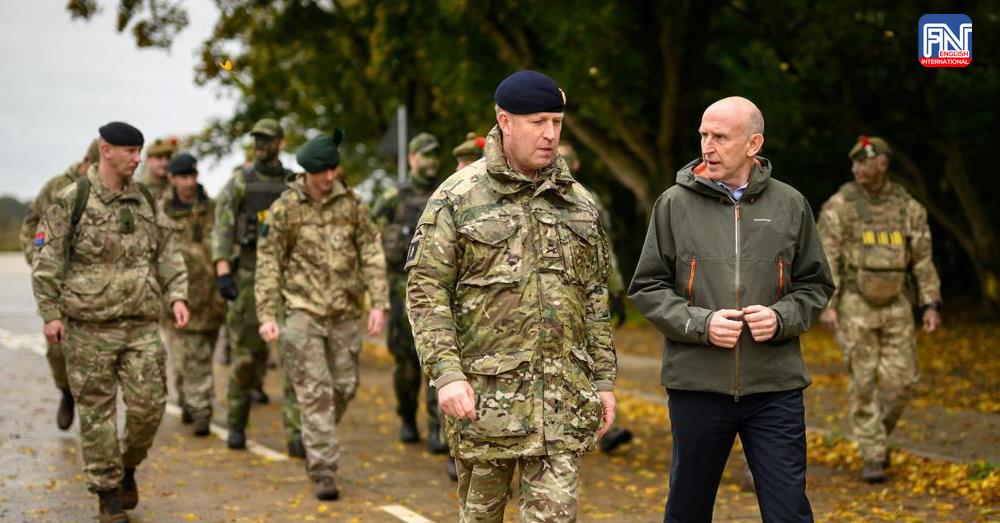LONDON, Oct 22 (Reuters) - Britain will lend Ukraine 2.26 billion pounds ($2.94 billion) as part of a much larger planned loan from the Group of Seven nations backed by frozen Russian central bank assets to help buy weapons and rebuild damaged infrastructure.
Defence minister John Healey said the money donated by Britain would be solely for Ukraine's military and could be used to help develop drones capable of travelling further than some long-range missiles.
Healey said the use of Britain's share of the G7 loan had been a feature of talks between Ukrainian President Volodymyr Zelenskiy and Prime Minister Keir Starmer in talks in London two weeks ago and G7 defence ministers in Italy over the weekend.
Asked if Britain would allow Ukraine to use the money to buy British-made Storm Shadow missiles to hit targets deep inside Russia, Healey told reporters: "They are developing very heavily the use of even longer-range drones. They will work with us over how they use this money, and on the weapons they most need."
The G7 announced in June it would provide a $50 billion loan to help Ukraine, serviced by profits generated by about $300 billion in Russian sovereign assets immobilised in the West.
The assets were frozen shortly after Russia launched a full-scale invasion of Ukraine in February 2022. Russia has repeatedly threatened retaliation to any use of frozen Russian assets to finance Ukraine, which it describes as illegal.
Talks about the G7 loan are accelerating as Western countries want to secure funding to Ukraine due to concerns that if Republican presidential candidate Donald Trump wins the U.S. election next month, he could reduce support.
The European Union, where the bulk of the Russian assets are blocked, has already agreed to provide 35 billion euros ($38 billion) as part of the bloc's share.
The British contribution is on top of the 12.8 billion pounds ($16.61 billion) it has already committed in support to Ukraine.
Finance minister Rachel Reeves said the one-off loan would be released in tranches.

Photo from Reuters